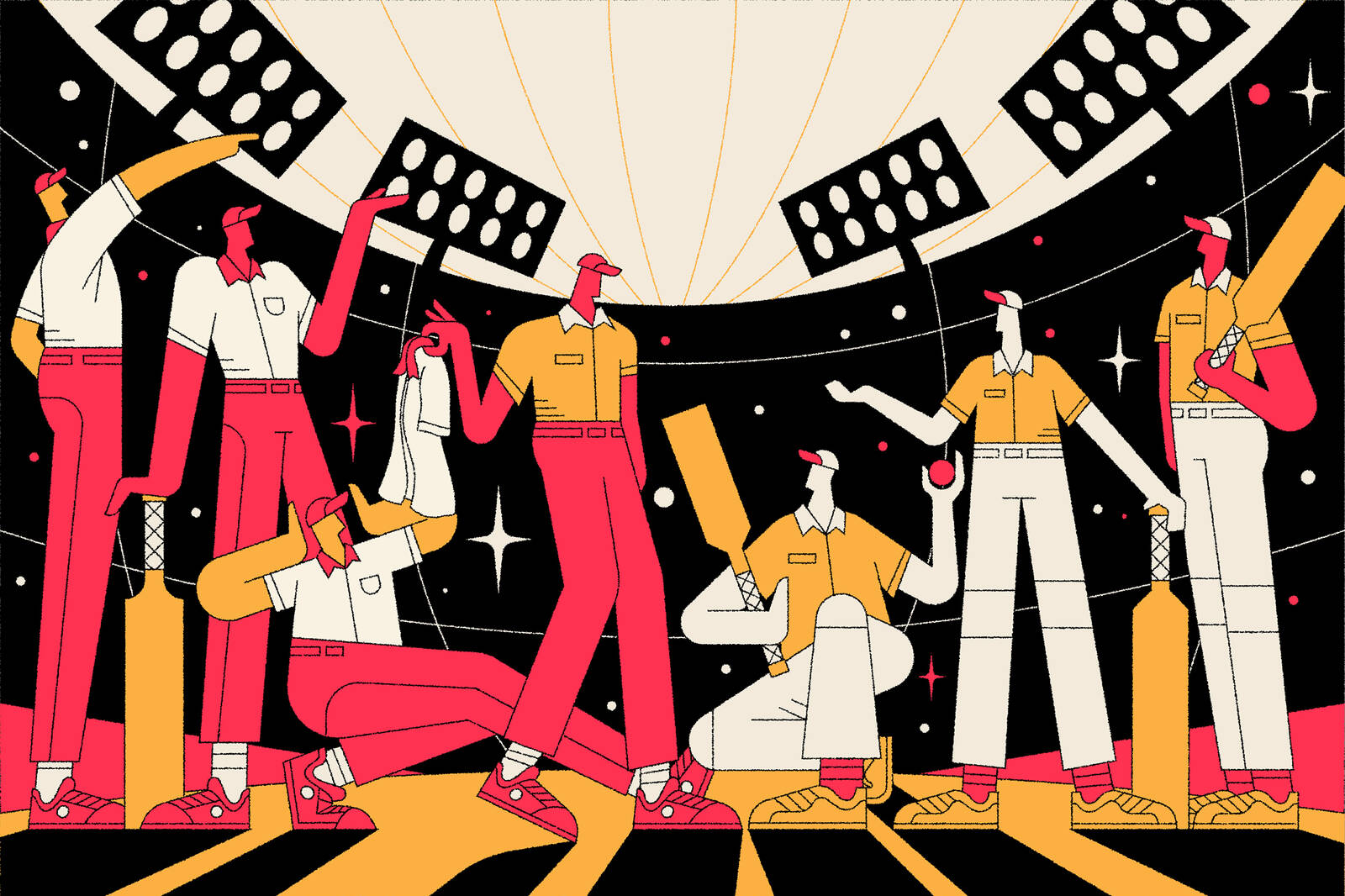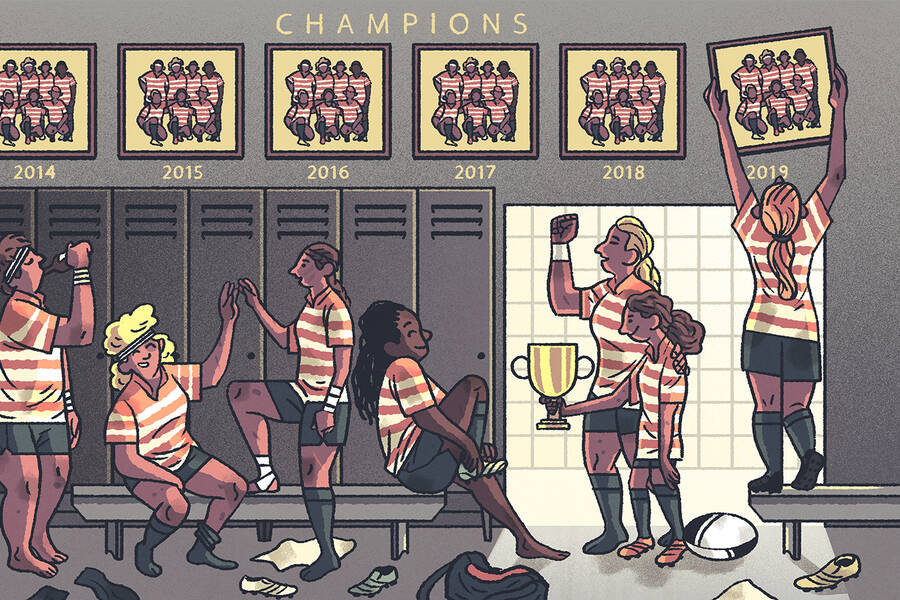Brian Uzzi first heard of the teams through Satyam Mukherjee, who worked in Uzzi’s lab as a post-doctoral researcher and is now at India’s Shiv Nadar University. “Satyam was recruited to play cricket in college but ended up doing a PhD in physics after a knee injury,” says Uzzi, a Kellogg professor of management and organizations and codirector of the Northwestern Institute on Complex Systems (NICO) and the Ryan Institute on Complexity. “We were doing research on teams in science, and he wanted to look at how patterns of collaboration played out on sports teams.”
Their original line of questioning resulted in a study showing that it was not only the collection of individual talent that led to team wins but also teammates’ history of winning together.
That work led Uzzi and Mukherjee to consider a related question: What happens when players who leave their team for a new one—whether through trades, free agency, or “auctions” in cricket—play against their former teammates?
“If you play against someone you know,” Uzzi says, “you know their strengths and weaknesses and can better strategize around them. You might know how the team reacts collectively and the sort of advice the coach will give—the overall playbook.”
In short, players going up against their former teams or teammates may be able to anticipate how key elements of the competition will go and come up with tactics to win.
Then there’s the psychology factor: “The original team may want to show they made the right decision in trading you to someone else,” Uzzi says, “but you want to perform at a high level to show they didn’t and to protect your self-esteem.”
Yet there can also be disadvantages for players going up against former teammates, as Uzzi notes: “You might forget what your teammates were like, or there might be new players on your old team. Or they might get in better shape. Or have a new team mindset.”
To understand what happens when players compete with their old teams or former teammates, Uzzi, Mukherjee, and Northwestern colleagues Yun Huang and Noshir Contractor (also a Kellogg professor of management and organizations) studied the IPL’s cricket players, teams, and match outcomes. They found that when a team was familiar with more players on the opposing team, it was significantly more likely to win a match against that team.
When “recruiting a player, franchise owners should not rely solely on the player’s ability but also leverage the rivalry between former teammates,” the researchers write. The same could be said for academic, business, and other types of organizations looking for a competitive edge.
Team ecosystem matters
The researchers analyzed data from over eight seasons of the Indian Premier League, from 2012–2019. The league is a relatively new one in India, devoted to shorter-form matches, rather than the traditional days-long competitions.
In examining the nearly 500 matches during that period, the researchers identified the number of players who had played for an opposing team in a given match, and the differences between these numbers for each of the competing teams. They not only looked at who won a given match, but also the difference in runs scored by the winning and losing teams.
The researchers also controlled for factors like the talent level of individual cricket players—based on statistics such as their batting, bowling (equivalent to pitching in baseball), and fielding percentages—along with team dynamics, such as the number of times players on a given team had played together in the past.
Overall, a team’s familiarity with players on an opposing team proved to be far more critical to its success than overall team skill or its players’ prior shared success.
To be specific, the odds of a cricket team beating an opposing team was 1.6 times higher if it had fewer players who had previously played for the opposing team than the other way around. In short, teams that had insight into more members of the opposing team were significantly more likely to win a match against that team.
“It shows that winning isn’t just driven by individual talent or team spirit,” Uzzi says. “It also has to do with how much experience players have with teams they’re competing against. That knowledge can come from a ‘broker’ who at one point was on the other team.”
The results might help explain the famous Miracle on Ice, when the massive-underdog U.S. hockey team beat top-ranked Russia for the gold medal at the 1980 Olympics. Several of the players on the U.S. team had previously trained in Russia and at one point played with many of the Russian players. “In doing so, the Americans may have learned a lot about the Russian team,” Uzzi says, “and that might have helped them come out on top.”
Recruit for past experience
The findings have clear implications for the way sports organizations build their teams.
“If you’re recruiting two prospects with similar talents for the same position, you’d probably want the one who’s been on the most other teams,” Uzzi says, suggesting that this could provide a team with more insight into more of its rivals.
But organizations beyond the world of sports can apply the findings to their teams, too. Academic institutions are one example. “In a university, you’re fighting to get the best students and funding,” Uzzi says. “That could come from taking top talent from another school and finding out how those schools competed for those things, and then maybe adopt some new practices based on what you learn.”
The lessons are relevant for a wide range of businesses as well. “Apple hired many employees from Tesla’s electric-car team some years ago because they wanted to get started in the business, and they were looking to get those kinds of secrets,” Uzzi says. This practice has spurred many organizations to set guardrails against talent-poaching through noncompete clauses or nondisclosure agreements.
Businesses have also tried to protect against this practice by building their internal talent pool through growth opportunities. “Sometimes a really strong organization is one that grows from the inside,” Uzzi says. “They grow their talent up, so they are less likely to leak to other organizations.”
And of course, he adds, “it’s also important to evolve, so even if people leave your team, your game will have changed.”




